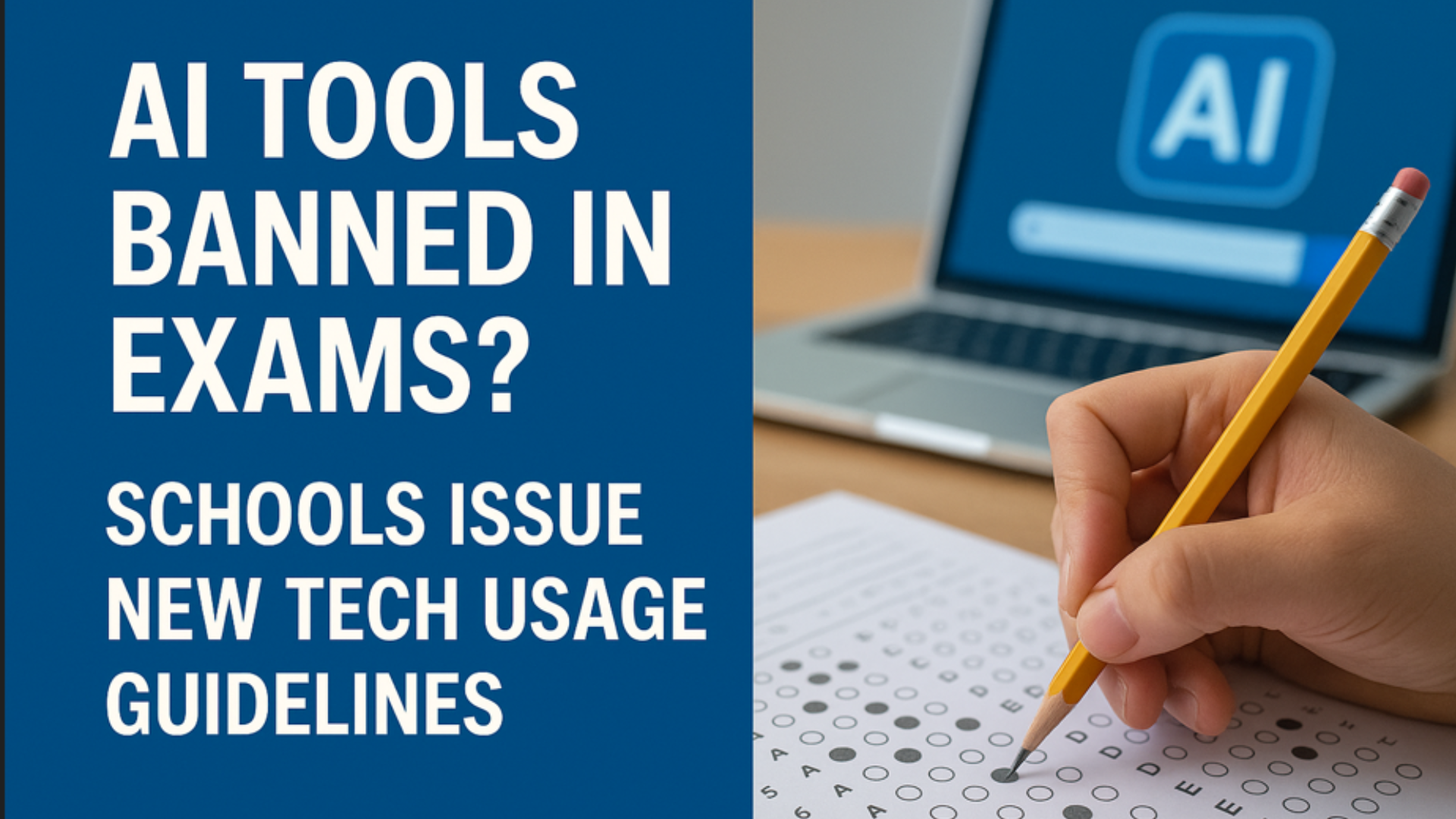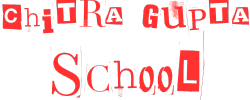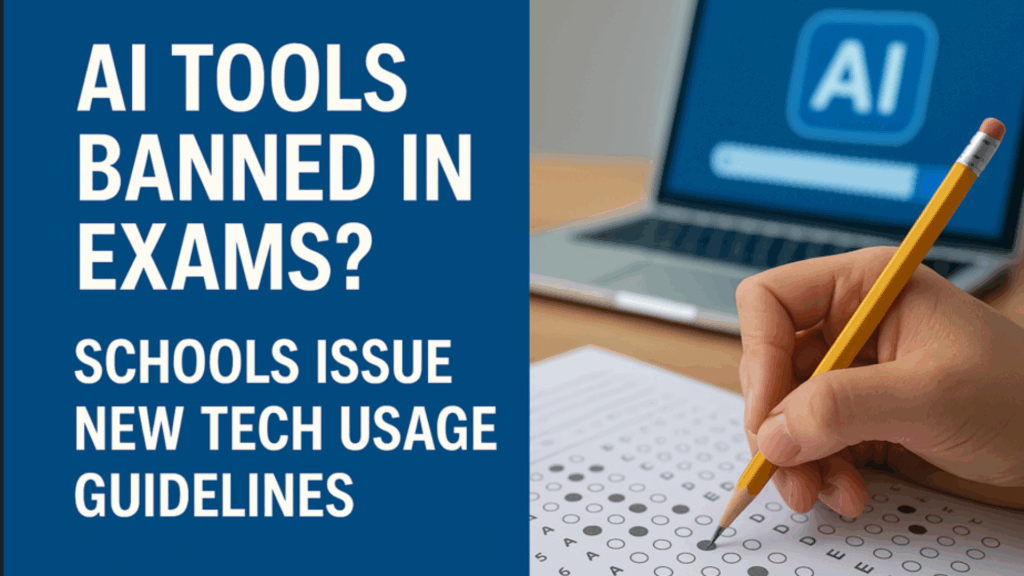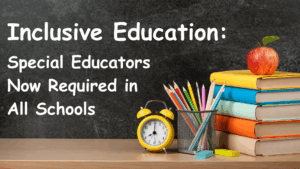In this post, we have talked about various AI Tools Banned in exams. Schools Issue New Tech Usage Guidelines, which have been provided here in detail.
AI Tools Banned in Exams?
As artificial intelligence (AI) becomes more accessible to students, schools across India are responding with fresh guidelines. From AI-generated essays to solving math problems in seconds, students now have unprecedented access to tools that can complete assignments with minimal effort. This rapid adoption has sparked debates over academic integrity and fair assessment practices.
In response, many school boards and private institutions have begun drafting clear policies regarding the use of AI tools during exams and assignments. These rules are not aimed at stifling innovation but are intended to create a level playing field for all students.
Official Ban in Exams, Regulated Use in Classrooms
A growing number of schools, especially those affiliated with CBSE and ICSE, have issued circulars officially banning AI tools like ChatGPT, Bard, and AI-based calculators during exams. High-stakes board exams and internal assessments specifically enforce these rules.

However, institutions are not entirely closing the doors on technology. Teachers are promoting the integration of AI tools into classroom learning, enabling students to recognize their potential and learn responsible usage. For instance, we can utilize AI in the following ways:
- Enhancing language learning
- Creating study summaries
- Brainstorming ideas for creative writing
But any AI-assisted submissions must be clearly acknowledged to avoid plagiarism concerns.
Common Guidelines Issued by Schools
Below is a summary table of common AI usage guidelines introduced in schools:
| Rule/Guideline | Implementation Status |
|---|---|
| No AI tool usage during exams | Mandatory |
| AI usage must be cited in assignments | Mandatory |
| Use of AI restricted to learning support only | Recommended |
| Workshops on responsible AI use for students | Ongoing |
These efforts mirror a wider change in educational policy, prioritizing ethical tech use alongside digital literacy.
Teachers to Undergo AI Literacy Training
Recognizing the need for educators to stay ahead of technological trends, many schools are rolling out training programs for teachers. These sessions focus on how to identify AI-generated content, how to teach students about data bias, and how to encourage critical thinking in the digital age.
“Teachers must be equipped not just to supervise, but to guide students in using AI wisely,” said a Delhi-based school principal who has implemented AI-use guidelines this academic year.
Student Reactions and Adaptation
The student community has shown mixed reactions. While some students view the guidelines as essential for maintaining fairness, others perceive them as a restriction on their learning tools. However, most agree that clear communication and digital ethics should be taught alongside AI use.
One Class 10 student shared, “We know AI can help us, but schools should teach us how to use it the right way instead of just banning it.”
What Lies Ahead for Tech in Education?
The current wave of regulation may just be the beginning. Education experts predict that AI will eventually become an embedded part of the curriculum. The focus will likely shift from ‘ban and block’ to ‘train and teach’ in the next five years.
The National Education Policy (NEP) 2020 already promotes digital integration, and we anticipate a rapid evolution of regulatory guidelines for AI use in schools. The goal is to create tech-savvy students who can use AI as a tool, not a crutch.
Thank you so much for reading this post on our portal.





